Student Well–Being
Our Goals
-
To develop essential social & emotional competencies in students for them to thrive in a fast- changing world
-
To nurture students holistically through the three domains of student well-being to better prepare them for the future
-
To support students with different needs via targeted programs and an established system of case management
SHINE
Henry Park Primary School adopts a whole school approach to foster positive mental health and wellbeing through Positive Education. SHINE is a student wellbeing framework that depicts the 5 domains that help our students flourish.
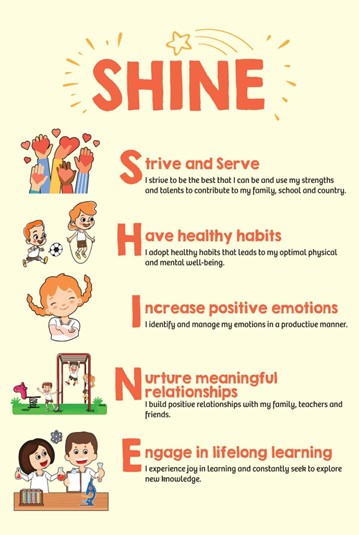
The school supports our students’ holistic development through explicit classroom teaching, assembly programs as well as engaging activities in collaboration with the different departments and external agencies.
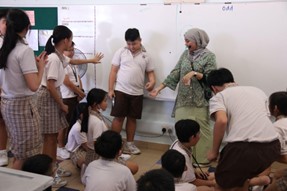
|
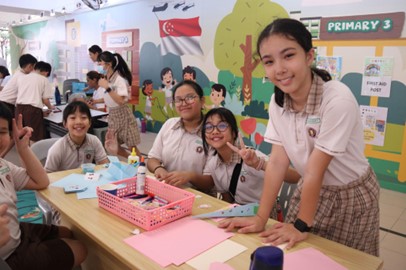
|
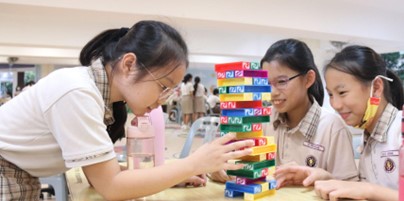
|
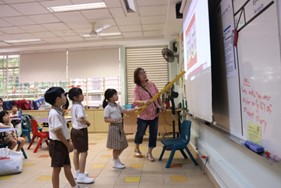
|
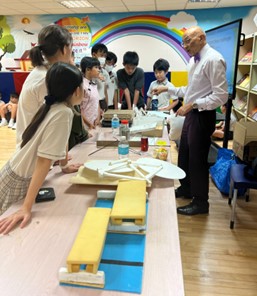
|
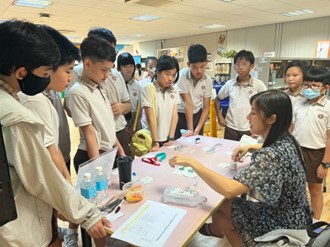
|
Social and Emotional Well Being
Social
A student’s ability to establish and maintain positive relationships with family, teachers and friends contributes to his or her social well-being. HPPS seeks to equip every student with the skills to relate to and connect with other people.
Emotional
A student’s ability to acknowledge and share positive and negative feelings in a productive manner contributes to the students’ emotional well-being. HPPS seeks to create opportunities for our students to have a deeper understanding of themselves so that they can develop their strengths and work on their weaknesses.
Social & Emotional (SE) Competencies
Social and Emotional Competencies are essential for students to thrive in the 21st Century and are integral skills in MOE’s Framework for 21st Century Competencies and Desired Student Outcomes. The five key social and emotional competencies are:
a) Self-Awareness
b) Social Awareness
c) Self-Management
d) Relationship Management
e) Responsible Decision-making
|
Social and Emotional Competency |
Definition |
|---|---|
|
Self-Awareness
|
A child has self-awareness if he/she understands his/her own emotions, strengths, inclinations and weaknesses. |
|
Self-Management
|
A child can manage himself/herself effectively if he/she has the capacity to manage his/her own emotions. He / She should be self-motivated, exercise discipline and display strong goal-setting and organisational skills. |
|
Social Awareness
|
A child has social awareness if he/she has the ability to accurately discern different perspectives, recognise and appreciate diversity, empathise with and respect others. |
|
Relationship Management
|
A child can manage relationships effectively if he/she has the ability to establish and maintain healthy and rewarding relationships through effective communication, and is able to work with others to resolve issues and provide assistance. |
|
Responsible Decision-Making
|
A child can make responsible decisions if he/she has the capacity to identify and analyse a situation competently. He/she should be able to reflect upon the implications of decisions made, based on personal, moral and ethical considerations. |
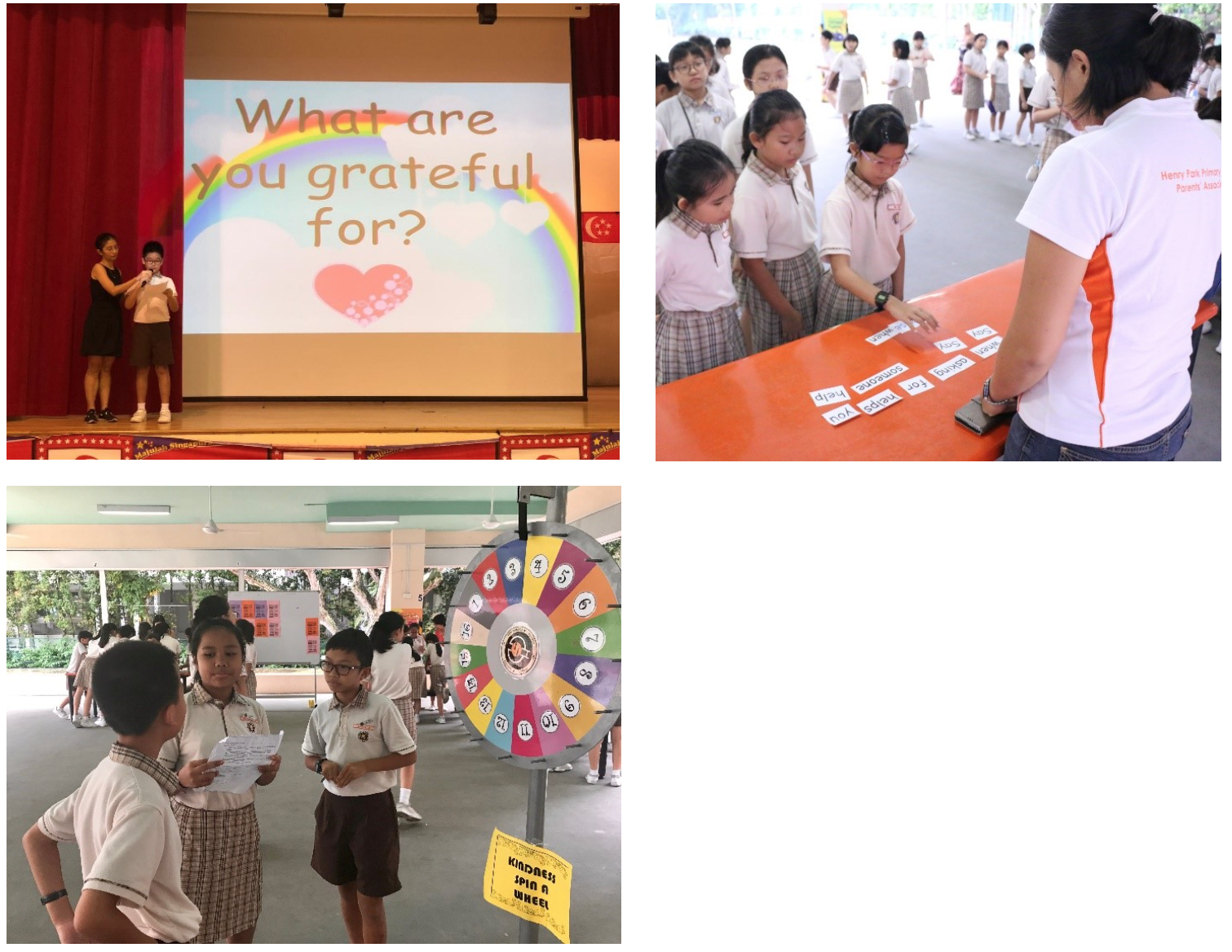
Programme for Active Learning (PAL)
PAL is an initiative designed to enhance the foundational years of education by placing greater emphasis on non-academic programs. Its primary goal is to foster the holistic development of students and promote comprehensive learning. PAL offers diverse opportunities for students to cultivate social and emotional competencies (SE) and embrace Character Education (CE) values. It serves as a platform to equip students with the necessary knowledge, skills, and values to succeed in the 21st century.
Embracing values education, PAL adopts an experiential approach that fosters learning in a dynamic and enjoyable atmosphere. It encourages students to explore, create, and enhance their social and emotional competencies. Through PAL, students are empowered to develop the 3Cs—Curiosity, Cooperation, and Confidence.
PAL comprises modules of activities spanning two main areas: Sports & Games and Outdoor Education, as well as Performing Arts and Visual Arts. These modules offer students a wide range of engaging experiences, allowing them to broaden their horizons and discover new interests.
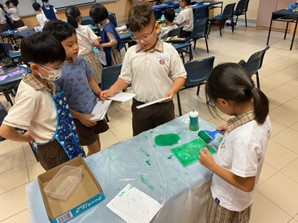
|
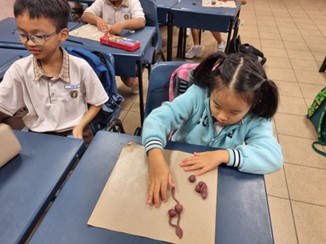
|
|---|---|
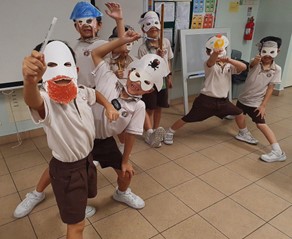
|
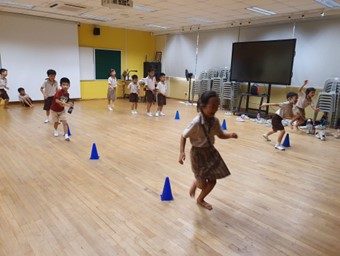
|
Parenting Workshops
Henry Park Primary School partners with Lakeside Family Services to offer Positive Parenting Programme (Triple P). The purpose is to provide stronger support for parents who wish to improve their children’s behaviour and reduce parenting stress. The Positive Parenting Program (Triple P) is one of the most effective evidence-based parenting programs in the world, backed up by more than 30 years of ongoing research. Triple P gives parents simple and practical strategies to help them confidently manage their children’s behaviour, prevent problems developing and build strong, healthy relationships. Triple P is currently used in 25 countries and has been shown to work across cultures, socio-economic groups and in all kinds of family structures.
HPPS parents will have the opportunity to participate in three two-hour seminars to enhance their parenting skills, knowledge and confidence.
Seminar 1 – Positive Parenting
Seminar 2 – Raising Confident and Competent Children
Seminar 3 – Raising Resilient Children
The school also organizes other parenting workshops rooted in positive psychology to engage our parents in our Positive Education initiative and assist them along their parenting path.
Peer Support
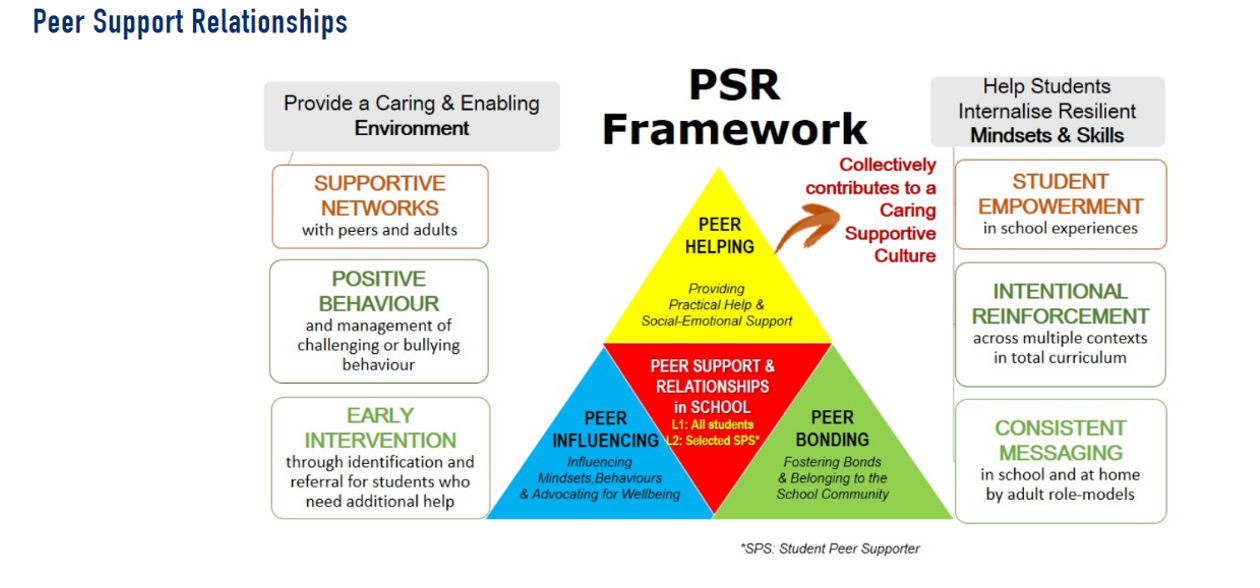
Our vision is for every student to be a peer supporter where students build bonds of friendship with one another. Students form a strong network of support in class as well as in the various activities that they go through together.
Peer Support is an important part of culture-building within the school context to create an environment which is caring and enabling.
Tier 1
During FTGP lessons, students have discussions that nurture and hone their skills to be a good peer supporter to the people around them. These lessons focus on kindness, care and concern towards their friends as well as how to be a positive influence. Students are also taught how to be a good buddy and how to ask for help should the need arise.
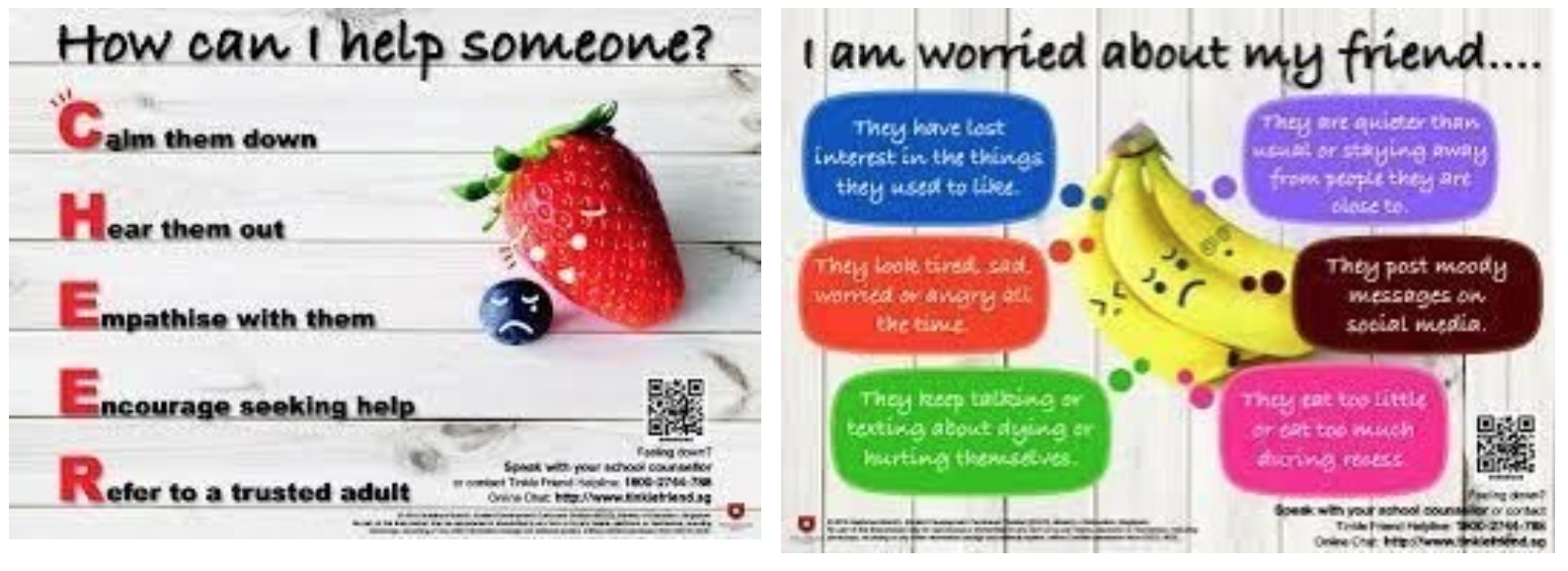
Tier 2
From 2020, the school embarked on training a group of students to be leaders to drive the peer support initiatives throughout the school. These students, known as the Peer Supporter Leaders (PSLs) go through additional training to equip them with the knowledge and skills to spread this culture of care through peer bonding, peer helping and peer influencing. PSLs also assume roles in school events to be advocates for Kindness Programmes and undertake projects to spread care and gratitude amongst their peers.
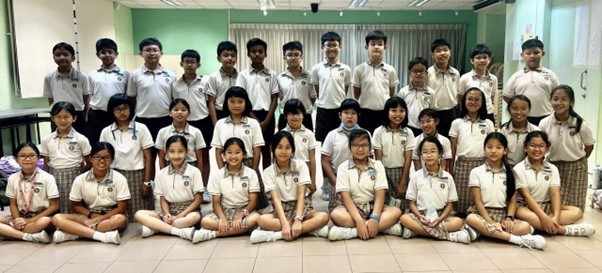
|
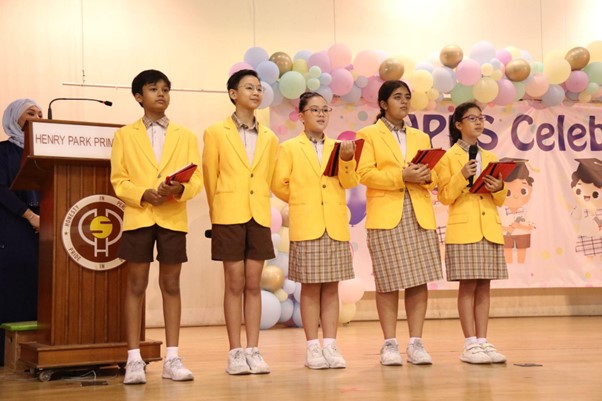
|
|
|---|---|---|
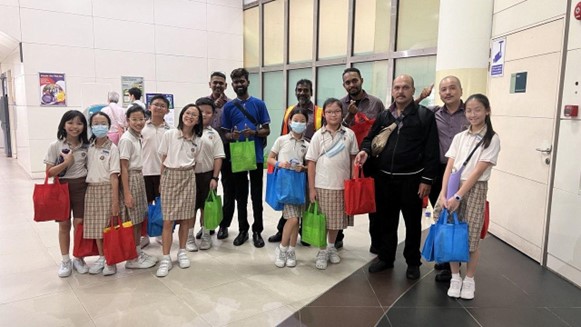
|
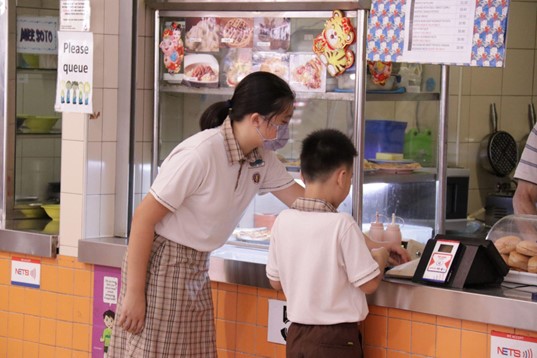
|
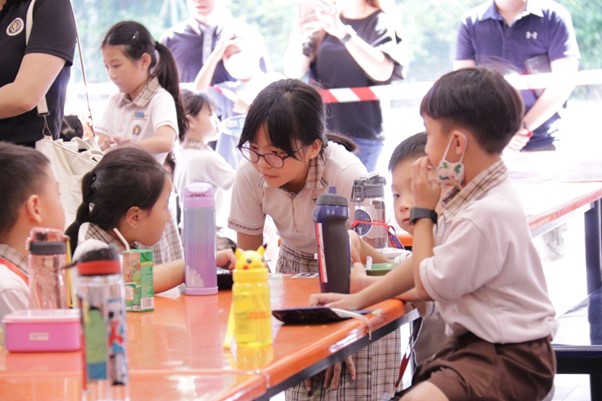
|
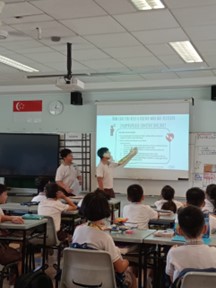
|
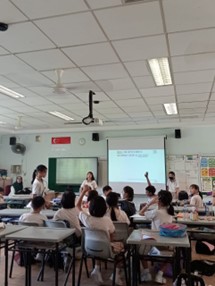
|
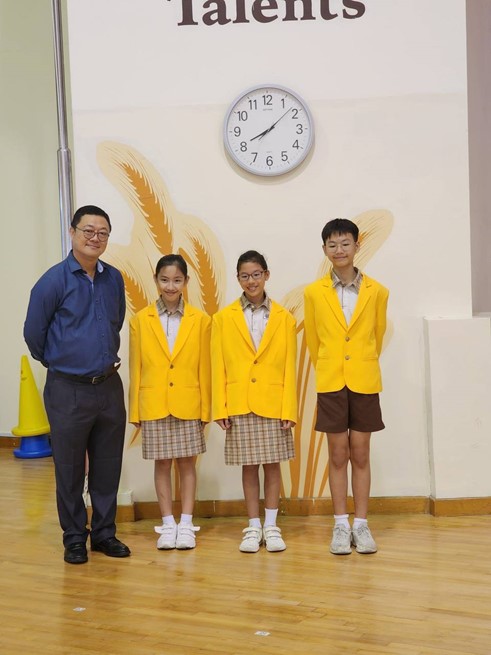
|

